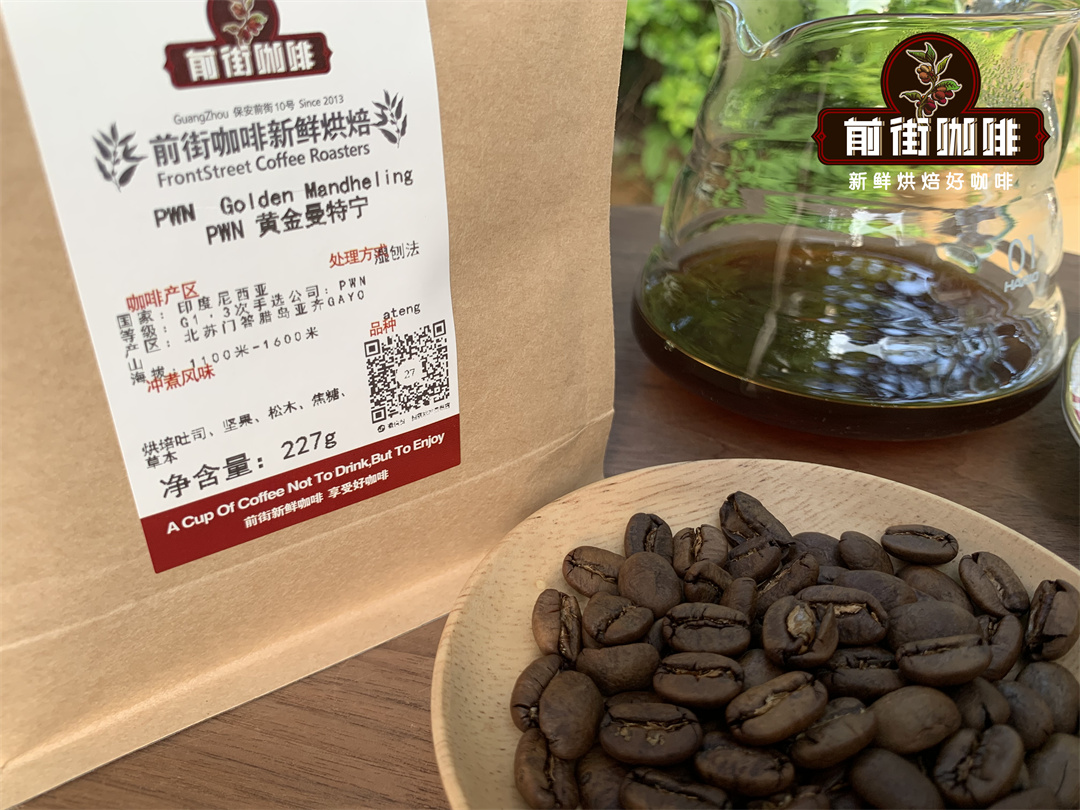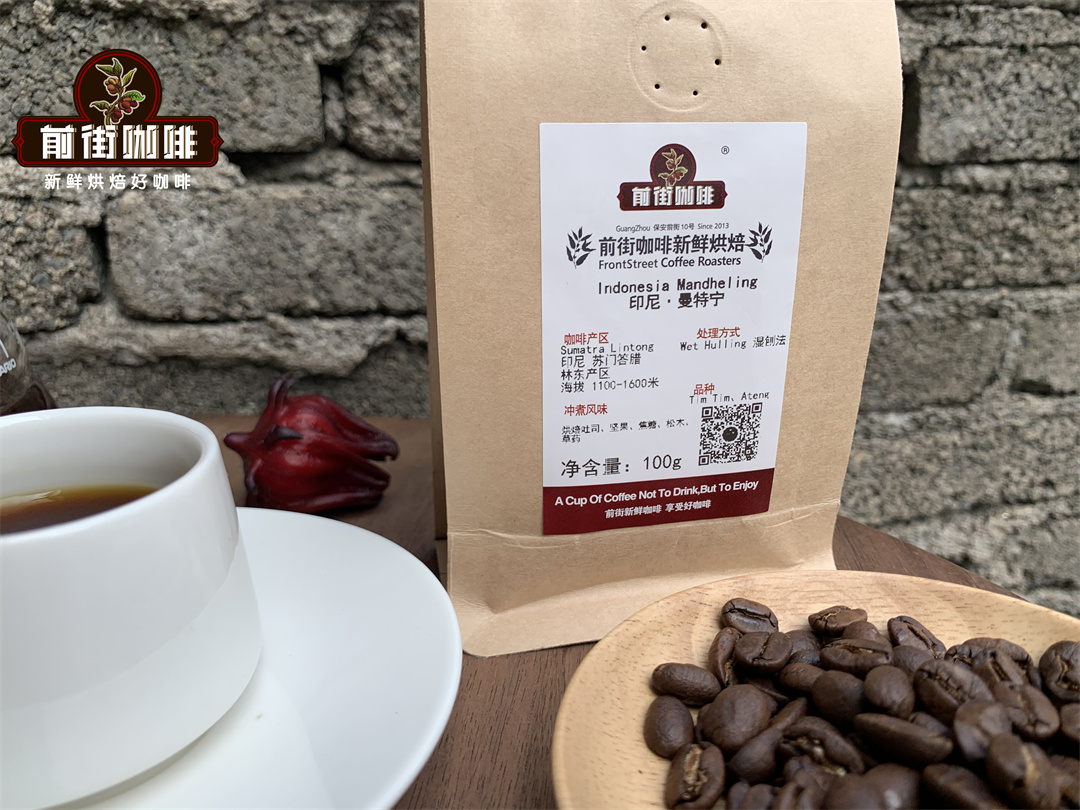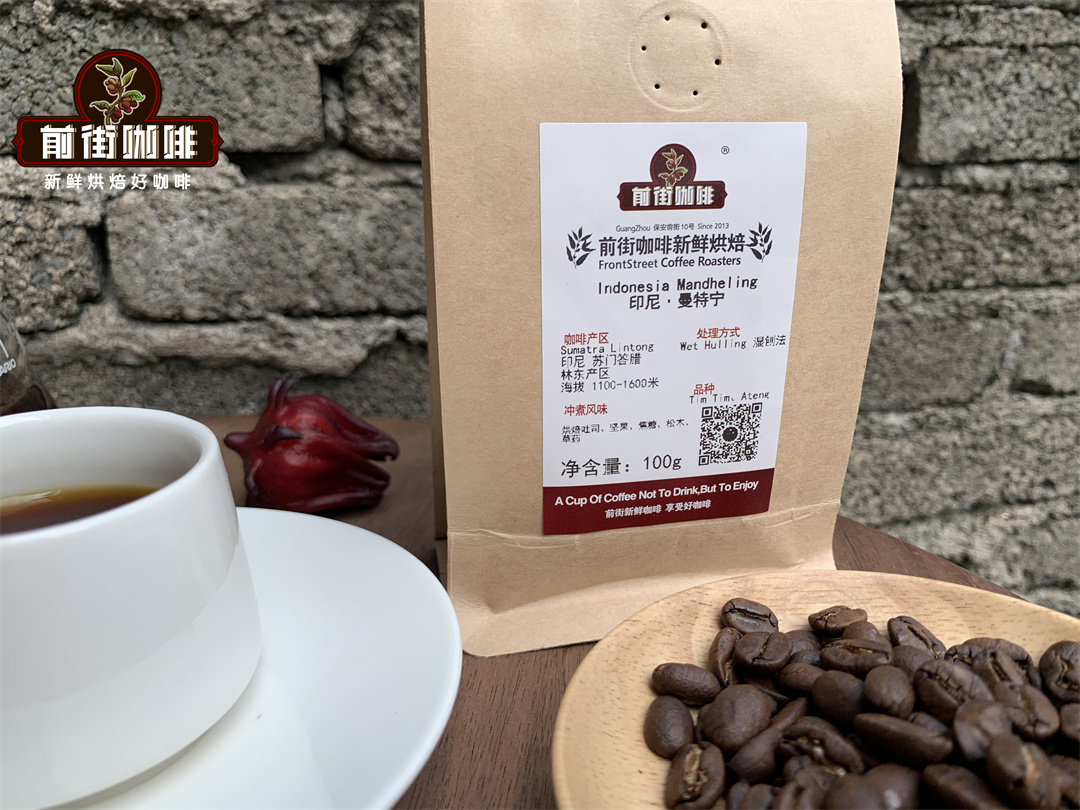What are the types and grading criteria of Indonesia's Mantenin? how to distinguish between old manning and gold manning?
Indonesian coffee is mainly semi-washed, which is graded according to the proportion of defective beans and the number of defective beans selected by hand. There are five different grades from G1 to G5, with G1 being the highest. Under the grading system, Sumatra is divided into four different systems: Mantenin, Golden Manning, Tawa Lake Coffee, and Old Manning.
1. Mantenin, which refers to coffee from the north-central DANAU TOBA, 9 to 1200 meters above sea level in the Lindong Mountains, is often treated by the sun treatment, or the post-processing method unique to Indonesia-the wet planing method.
two。 Golden Mantenin, compared with the general Mantenin coffee beans, has been screened by hand for more than four times, and most of the coffee is treated by sun and semi-washing.

3. Tawahu Coffee, the coffee in the northernmost Achee region of Sumatra, near the highlands around Tawar. Due to the arrival of well-known coffee groups and the semi-washing technology taught by some owners of Costa Rican coffee estates, the coffee in this area is mainly treated by water washing and semi-washing.
4. Aged Mantenin, the raw beans covered by endocarp are aged and are generally stored in the constant temperature warehouse of the place of origin, which are regularly turned by the manor owner to make the raw beans come into contact with the air evenly and maintain their activity. The treatment time of aged Mantenin usually ranges from 3 to 5 years. After aging, its acid quality weakens and its alcohol thickness increases, which is different from the lively and bright flavor of fresh raw beans.
Important Notice :
前街咖啡 FrontStreet Coffee has moved to new addredd:
FrontStreet Coffee Address: 315,Donghua East Road,GuangZhou
Tel:020 38364473
- Prev

Mantenin coffee with unique herbal flavor. Have you heard the story of it?
Fuelled by the third wave of boutique coffee in recent years, growers and processors from producing areas, to bean bakers, baristas, and even drinking guests, pay more and more attention to the production experience of coffee beans. We have more or less heard of geisha coffee (variety) and Yegashev (place of origin) in Ethiopia. I used to hear "Mamba".
- Next

How to identify the characteristics of Manning Coffee by being sour or bitter?
In the past, we often heard of Mamba coffee, that is, Manning mixed with Brazilian coffee formula. now we know that Brazil, as a place of origin, contains many different producing areas, which is subdivided into many different estates, with different varieties of coffee trees planted. So, is Manning a variety such as Rosa Coffee, or is it?
Related
- What brand of black coffee is the most authentic and delicious? what are the characteristics of the flavor of the authentic Rose Summer Black Coffee?
- Introduction to the principle and characteristics of the correct use of mocha pot A detailed course of mocha pot brewing coffee is described in five steps.
- Which is better, decaf or regular coffee? how is decaf made?
- How much is a bag of four cat coffee?
- How about four Cat Coffee or Nestle Coffee? why is it a cheap scam?
- Which is better, Yunnan four Cats Coffee or Nestle Coffee? How about cat coffee? is it a fake scam? why is it so cheap?
- How about Cat Coffee? what grade is a hoax? which instant coffee tastes better, four Cat Coffee, Nestle Coffee or G7 coffee?
- Process flow chart of coffee making-Starbucks coffee making process what coffee tastes good at Starbucks
- The top ten best coffee beans in the world Rose summer coffee or Tanzanian coffee tastes good
- Yunnan four cat coffee is good to drink?_four cat coffee is a big brand? four cat blue mountain coffee is fake?

